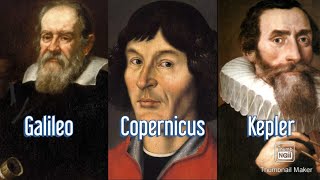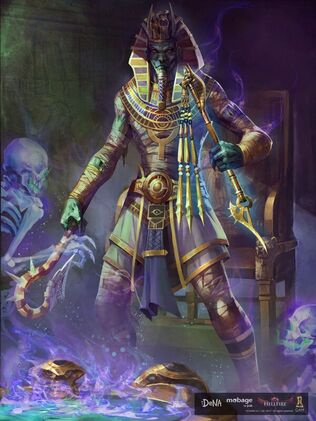|
The lenses I use to view Gaza
1. Truth about everything went missing the moment Netanyahu declared, "This is war!" In war the first casualty is truth. 2. The war in Gaza will be over when Gaza is obliterated. All that precedes the annihilation of Palestine is preliminary. 3. The Holocaust is supposed to always be in any thought about Israel. That manipulates response to what Israel is undertaking in Gaza. The Holocaust happened, but it does not justify another round of it. 4. Israel is a nation state as well as a mythic state. To say "Israel" always evokes a mega-narrative that is a confused mixture of history, geo-politics, and religion.
0 Comments
At the heart of the Renaissance / Enlightenment is the concept that there is another way to arrive at truth than to ascertain how it conforms to Holy Scripture. It had been the profound writings of Thomas Aquinas (1225-1274) that convinced Holy Church with its staggering authority and power to control, that Aristotle had observed nature carefully and sufficiently and then expounded on it in a way that confirmed that natural philosophy and Christian theology were in agreement. In other words, the Church was satisfied that Aristotle had described nature correctly. It need not be questioned.
The Polish astronomer Copernicus (1473-1545) compiled a theory of heliocentrism based on observations and prior writings going back to Greek and Persian sources that contradicted Aristotle. Galileo (1564-1642) was a natural philosopher who deferred entirely to mathematical calculations and precise observations to expand on Copernicus’s theory. Through the use of telescopes which he made, Galileo found moons revolving around Jupiter and this broke the last links to the Acquinas – Aristotelian theory that the earth is both in the center of the universe and that the earth does not move. It remained for Isaac Newton (1643-1727) to formulate laws of physics to explain how objects react to one another (laws of motion and gravity). Taken as a whole, theology was no longer necessary to account for how nature operates. Meanwhile, the European world was growing better educated and power was shifting from those born to it (royalty in particular) to those who acquired it (merchants and bankers). Books became available, education expanded and even the Holy Bible itself became the property of anyone who could read it in their own language. The Church lost control but fought the loss every step of the way. By the 19th century, at least superficially, it seems that the shift was clear. “Truth is decided within its realm of discourse: theological truth by theological rules, moral truth by cultural principles, mathematical truth by mathematical logic. Scientific truth is figured out by careful observation and verification of conclusions and by duplication of test results. Who owns the truth? The more basic question is whether it can be owned at all. It seems independent. Applications of truth can be owned. Patents and copyrights try to do that. When it comes to expressions of truth, however, the ground becomes soft and treacherous. Propaganda is exploitation of that miry territory where truth is manipulated by those with power to do it. Often the problem is to determine the effects of certain expressions of truth. Here in Thailand free expression of opinion is permitted unless it offends those who have custody of the cultural pillars: the state, the religion, and the monarchy. In real terms, however, other restrictions on free expression are to be found. One can be prosecuted for telling the truth if it destroys someone’s character. This very week, in an apparent extension of that, Thai Air has pressed charges against a passenger who berated the airline for diverting a flight from one city in Australia to another. This posting on the Internet by the passenger “damaged the airline’s reputation,” the airline asserts. But in the USA what you say about someone is only slanderous or libelous if it is factually untrue. Last week a woman in New York was awarded $83 million because of what Donald Trump said about her. The award was made because what Trump said about her was untrue, not because it damaged her reputation. Now we are at a time when the very nature of truth is again being attacked. Sometimes the attack is direct, an assault on a specific truth. It seems that was the case with regard to scientific studies of COVID-19 and the development of interventions, vaccines, and preventive measures like face masks. Any and all facts about what is happening in Gaza are attacked almost as soon as they are expressed. The result is that nothing is true in the sense that it becomes the basis for beliefs about something. Beliefs are superior; they determine what is true when all truth is corrupt. What remains is to compile a belief system that has adherents with power. What this means is that sometimes the attack on truth is philosophical, an assault on the idea that there is any truth aside from what individuals work out for themselves. It is claimed that the mechanisms and systems are flawed by which truths are discovered and refined. Educational systems in particular are said to be corruptible. For one thing, what these institutions of education are designed to produce is servants of mega-systems, workers who function as needed. Mega-systems are evil. To hell with them! Rebellion against mega-systems, the military – industrial complex or international banking cartels for example, has a nice ring to it for some. Gen X voters going for Trump say the factor that attracts them is his rebellion against controls. The problem for those who take up arms against education is that the mega-systems still control the supply of money and those who fail to function as needed are deprived of resources. It is hard to sustain rebellion when you are all alone. “Yield and survive,” makes a lot of sense to most people. It remains to be seen whether this post-modernist (anti-structuralist) attack on truth is a tidal flow or just a wave that will have only temporary consequences. As for me, it is frightening to imagine what would happen if a consensus develops to once again confine truth to a single philosophical formula owned by an authority conducting inquiries and demanding conformity and adherence. That never works out well. The Thai Parliament passed 4 similar marriage equality bills this past Thursday, December 21. The vote was 360 to 10, with one abstention, which means there will certainly be LGBTQ+ marriages in Thailand next year. The bills sweep away distinctions between types of marriages.
There are still steps to be taken. A 39-member committee will now turn the 4 bills into one and Parliament will vote again, and then a third and final time. The bill will then be presented to the King. When he signs it, marriages can be registered. There is no timeline for these next steps, but considering the support this has, we can expect to celebrate early next year. This will make Thailand the third country in Asia after Taiwan and Nepal to recognize gay marriages. Analysts say that rapid social change has motivated the government to take action after stalling for several years. The government's own polls show that 96% of the people now favor recognition of LGBT marriages. Details are vague and there will be struggles for a while about things like taxes, international couples (like Pramote and me), and land ownership rights by members of extended families. It'll take time. But now we will celebrate. December 21, the longest night of the year got brighter last night to dispel some of the darkness. “Remember Koom Valley!” the Dwarves shouted and so did the Trolls. Neither side could remember much about what had happened in Koom Valley hundreds of years before. Terry Pratchett noted, “Every society needs a cry like that, but only in a few do they come out with the complete unvarnished version, which is Remember-The-Atrocity-Committed-Against-Us-Last-Time-That-Will-Excuse-The-Atrocity-That-We’re-About-To-Commit-Today!” [Pratchett, Terry; Thief of Time. New York, HarperCollins Publishers, Inc., 2001. P. 159]
Ironically, Pratchett wrote that just a few weeks before 9-11 ignited the slogan “Never Forget!”. America’s Desert Storm war and the 1990-91 crusade to get Saddam Hussein and eliminate his (nonexistent) weapons of mass destruction was the primary excuse for the Taliban to attack the USA on 9/11 2001. 9-11 led to the war against the Taliban and the successful assassination of Osama ben Laden. Wars need a war cry. “Remember, remember the fifth of November….” “Remember the Alamo” “Remember Pearl Harbor” The effect of the cry, however, is usually more war on a greater and less restrained scale. On October 7, 2023 Hamas, based in Gaza, launched a brutal attack on nearby Israeli settlements, kibbutzim, and notably a music festival. 1400 people were killed by Hamas fighters and 250 were taken hostage. The atrocity was appalling. Prime Minister Netanyahu of Israel immediately declared war on Hamas. We are now in the third month of that war which has resulted in almost 19,000 Palestinians killed and 51,000 injured. Of the 2.2 million Palestinians living in Gaza 1.9 are now homeless. News and political organizations are engaged in campaigns to justify actions by their combatants as responses to atrocities by the other side. Netanyahu insists the goal of the Israel Defense Forces (IDF) is to eradicate Hamas and prevent its declared goal of eliminating the State of Israel. Hamas’ battle cry is “From the river to the sea, Palestine will be free.” That is a distortion of the original, more-moderate interpretation of the slogan which advocates two states, Israel and Palestine, both free to direct their own affairs. Others suspect Netanyahu will really obliterate Gaza before he declares this war is over. The destruction going on is absolute. Netanyahu has a slim grip on political power. He is the most extreme right-wing leader in Israel’s 75-year history, but he is caught in the middle between moderates who want the war to stop killing children and radicals who will unseat the PM if he doesn’t achieve a solid victory in the eventual acquisition of all Israel’s perceived historical territory “from Dan to Beersheba.” Netanyahu and Israel have one main ally, the USA. From October 7, US President Biden has defended Israel’s retaliation with words and weapons. He traveled to Israel as the war was going on and began his visit by hugging Netanyahu. As recently as this week the USA alone in the United Nations Security Council voted against a motion to call for a humanitarian cease fire. The UN General Assembly then voted 153 to 10 in favor of the resolution. That is non-binding but represents world opinion and is a slap at the USA. One thing Biden and Netanyahu have in common is a slim and fragile majority of political support to hold office. It is beyond doubt that if President Joe Biden should appear to withdraw his support for Israel, he will alienate a substantial number of US Jewish votes and lose the 2024 election. No one dares to underestimate the influence of the American Israel Public Affairs Committee, a lobby with a multimillion-dollar bankroll to make or break US political races they target. On a more nuanced matter, Biden’s continued support of Israel keeps him on-line to influence Netanyahu, as he did in bringing about recent pauses in the war so that hostages could be exchanged and humanitarian food and medical aid could be trucked into Gaza. So here we are: Netanyahu is set to annex Gaza after it is reduced to rubble and its inhabitants driven into exile or desolation. What the area will be called and how Gaza’s Arab supporters will react remains to be seen. If Netanyahu cannot do it soon, he’s toast. His nemesis is settlers within his own country who refuse to be restrained as they take over whatever territory they set their eyes on. Biden is trapped between a rock (need for Jewish votes) and a hard place (need to be recognized as a leader of the USA in international affairs). His one small avenue is to succeed in advocating hostage release, escape for women and children from the war zone, and negotiating limited retaliation from Lebanon, Syria, and Iran. If he can appear to do those things, he may survive. His nemesis, in addition to the Republican Party, is his own Democrats in Congress who are needing something else to go their way (something about abortion, border protection, jobs, or something that will help them win re-election). Peace in Israel or Ukraine isn’t going to win them votes unless they can get that something. Hamas perpetrated an atrocity and Israel retaliated with a bigger atrocity. Atrocities spiral. History is against it, but we can only hope no military alliance emerges in the Middle East to cry, REMEMBER GAZA! Peace is a hard-sell these days.
Throughout history, wars have been, in one way or another, battles over land. Napoleon wanted Europe. Hitler wanted Russia (and everything between Germany and Moscow) with western Europe for starters. Spain took as much of the Americs as it could. Settlers from Europe claimed a “Manifest Destiny” to annihilate anyone who tried to block the take-over of all the land between Boston and Seattle. The British treated Australia and New Zealand as if they were vacant islands. But wars need stories. Ah, there’s the rub. Two rubs, actually: (1) who are “the we and the they,” and (2) “when was the ‘Once upon a time’?” Take the Hamas-Israel War, for example. Where did this war begin? One narrative has it that peace was shattered when Hamas viciously attacked settlements across the Gaza border. Now Israel is trying to obliterate Hamas. News media are vying to attach blame for what’s going on, and the stories are about violence, its perpetrators and victims. Peace hasn’t got a chance. The longer story, of course, is about land. Nobody can sort that story out to the satisfaction of any two contestants. There are two reasons for that. The most obvious reason is that there is no agreement about where the story begins. The Levant has been divided and redivided into states and countries, kingdoms and provinces, continuously, since before recorded history. What any particular spot was a part of, depends on when (exactly what particular time) is being talked about. Borders were arbitrary, generally determined by whoever had the prevailing military presence at the time. The Israeli government under Netanyahu now in 2023 wants the story of Israel to begin with Abraham, Moses, and David. God gave the land to the Jewish people and these heroes took it. The legitimacy of Modern Israel continues with the pogroms and Holocaust leading to the establishment of Zionist Israel by the United Nations in 1948. This narrative has never been accepted by Muslim “Arabs”. Their story begins with other heroes and features the contest between the Byzantine Empire along with Crusaders against Caliphs who claimed divine authority. That authority was interrupted by the settlement of World War I when Great Britain took control of the part of Syria they called Palestine. The second reason the story of the land can’t be sorted out satisfactorily is because the “we and they” are manipulated by the narrators. Hamas, the pro-Israel story says, is the criminal element who perpetrated the atrocity on October 7. Hamas is a military organization embedded (literally) in Gaza. It is unfortunate, the story continues, that Hamas has infiltrated Gaza so thoroughly that, in order to eradicate Hamas and prevent its resurrection, all of Gaza must be bombed and invaded. Hamas must be wiped out once and for all. The distinction between militants and non-militant Palestinians cannot be kept clear because Hamas has mixed in with all the people and buildings. It’s sad that children also are killed. Hamas uses civilians as shields, including hostages from other countries who happened to get caught on October 7. Israel is defending itself. Any narrative that questions that is antisemitic. There is another sort of narrative, nevertheless, that holds out for clarification about who Israel is. “Netanyahu is an authoritarian militarist and we, too, are Jews who disagree with what his right-wing radicals are doing. We are the majority, in fact.” As to particular battle plans and objectives, there can only be debate while those with weapons do their thing. That brings me to my analysis of why peace in this tragic event is not yet forthcoming. Beneath the surface issue of to whom the land of Palestine belongs (what are its boundaries and what power its government has) is the issue of IDENTITY. Eventually, the war will end and negotiation will begin – or vice-versa. But identity is non-negotiable. Every war of our time was a war to contest identity. That is what every war was about and why it was not settled by the battles over land. But identities are not clarified or established by arbitration or violence. War is always the wrong strategy. Negotiating a change of identity is also fruitless. Peacemaking is successful when it leads to the resolution of conflict by accepting the right to prosper of people with diverse identities. Melting must be part of the process. The thing to be done is not to melt cultures into one dominant cultural identity (which is the American myth), but to melt the notion that a single cultural identity should dominate. Payap University, in which I am an administrative adviser, has peace as a priority. We have a peace lab, a peace doctoral degree, a peace park, and a long tradition of peace advocacy. Yet, I am told we are paralyzed in this instance. This Hamas-Israel War is a conflict that resists dialogue. No matter what one says, it is wrong. The opposite of every essential truth about this war is also true. So, nothing is true that matters. There is no prospect of good coming from opening up conversation about the Hamas-Israel War. We will only open the floodgate of anger and hate if we say anything. (In this regard this is like every polarized discussion these days. There is no fair neutrality and no middle ground). Those angry retorts will be about who is to blame for this whole mess. The role of peacebuilders, however, is never to fix blame, nor is it ever to cover it over. Upon reflection I think if we are true to our principles as a peacebuilding institution, we need to try to frame a discussion, no matter the danger. I repeat: THE ISSUE IS IDENTITY. If we can refocus on identity as the driving force behind most violent conflicts, rather than land (or economic power), peacebuilding can be re-tooled as a viable strategy. Identity is compound. One’s identity includes segments that are unique and individual. No two personalities are identical. However, community is necessary and inevitable for all of us except rare hermits and a few sociopaths. Community building requires acquiescence to a shared identity. Me, I’m an elderly U.S. citizen, married to a Thai fellow, living immersed in his extended family and situated in a rural Northern Thai village. I am an academically inclined, officially employed university administrative specialist and a former cleric. I am self-identified that way. Peace, for me, comes because people in the extended family and village tend to agree with this. The Thai Immigration Police are interested in only some of those boxes, and they agree with my identity. Our gay group agrees as well. Parts of the church do not – and this has been problematic. Societies and nations function on similar principles of agreement, respect, and mutuality. Trouble starts when one segment decides “your identity is wrong.” Sometimes the sense is “our identity is superior to yours.” This becomes the theme in the narrative that justifies whatever amount of strife (i.e. diminution of peace) is to be fomented. There is another pitfall in using identity rather than territory as a defining marker. In the 1970s identity politics became a thing. Identity politics is politics based on a particular identity such as race, nationality, religion, gender, sexual orientation, social background, and social class. Identity politics is a mode of organizing based on the idea that some social groups are oppressed. The target groups are vulnerable to cultural imperialism, violence, exploitation, marginalization, or powerlessness. Identity politics recommends that narratives which negatively describe and stigmatize groups be rejected, and that a political struggle be undertaken to bring about inclusion rather than exclusion, to foster positive regard and actually to dissolve the political significance of ontology. Notice that identity politics sharpens differences and foments struggle without being careful about the strategy of the struggle (terror, violence, or ethnic cleansing might all be put on the table eventually). Furthermore, identity politics is reactive – it is the oppressor who starts the shouting and calls the shots. We need to relearn how we know who we are. On the whole, if identity is recognized as the core matter, in which the subject has the right to decide and outsiders who are not affected have no role, then what is to be done to enhance peace becomes not only clearer but more attainable. Possibility is dawning at that point. Bring on the peacemakers. Before any reorientation of perceptions like this can begin, of course, war must be given up. War is unsustainable. It is exhausting of all the emotional and material resources necessary to wage it. It is like a Ponzi scheme: it requires the recruitment of new participants to continue. When the Hamas-Israel war ends the real work can begin. It will take a monumental effort to separate identity from geography. It always does. That is why it is so rarely done. We instinctively think of location as essential to our identity. “I am American, an Illinois boy, an expat in Thailand.” It’s hard to imagine being divested of a defined place on earth. That’s what makes being an “international kid” so disorienting, and what makes ethnophobes and rednecks so aggravating. BRIEFLY: The Hamas-Israel War, as with all wars, seems to be about atrocities, behind which are competing claims to land. At an even more basic level this violation of peace is about failure to respect identities. Community building is successful when hospitality triumphs. GHOSTS AND MEMORIES LINGER
Ying, our oldest cat died yesterday. She had been with Pramote and me for 15 years, ever since she came across our south wall bringing her four kittens in her mouth one at a time. Some years ago, she moved inside with us and gradually lost interest in going out very often. As we do in old age, she got set in her ways. Every morning at 6 she went out and came back to lie in the sun as soon as it was up. Then she retired to her place in the shadow on the left end of the sofa. She ate fish at 5.30 in the evening but “Seafood” cat pellets were her main diet. We buried her last night after a month of declining health. She died quietly at 8.38 p.m. Since we can be so precise about the time, obviously we were with her. As she grew stiff, we buried her. There was finality about it. So, it surprised me today to find myself glancing at the end of the sofa. I noticed the condition of the cat food dish. I automatically thought about whether she was in or out before locking the door to go to the store this noon. Each time, something stirred in my scalp as I realized what I had done. I have a strange unsettled sense that she is dead and gone, but I haven’t adjusted to it. Why? I am deeply not superstitious. My interpretation of today’s lapses in thought are that these are MENTAL REFLEXES. They are habits of the mind. I am not surprised the cat is not curled up at the end of the sofa as she is supposed to be in a complete and happy world. I am surprised I automatically glanced into the shadow before thinking about it. It’s not all that different from knowing my dad would fix our dripping faucet if he were here – but he died 40 years ago. Faucet-Dad: it’s a mental reflex. Sofa-cat. Possibly these reflex actions are emotional. They are grief-driven. If I think about Ying [as I am doing right now] it springs to mind that it’s exactly 6.30 p.m., the last time she turned over yesterday evening … if I think about it, I am not surprised she is not over there on the floor under the daybed where she spent the last 5 hours of her life. It’s when I’m not thinking about, as I happen to notice it’s 6.30 and glance toward the daybed, that it surprises me she is not there, and I get a tingle in my scalp and stinging in my eye. I miss her. She was here more than anyone as I sat in my chair to read and write. She never went far. Of all our cats, she alone never wandered. Oh yes, what I am experiencing is the reality of her absence. Call it GRIEF. Furthermore, it’s a few days before Halloween. This is Thailand where ghosts are not a joking matter. Or say rather, it’s only jokes about them that are humorous. Other stories are heard more seriously. So, the third possibility is that her residue is lingering just beyond those space-time spots in the house. Here in Chiang Mai, of all places, I should not entirely rule out GHOSTS. We have a spirit shrine where Pramote dutifully puts a few goodies each morning and lights three candles one night a month. Do cats have ghosts? The Pope says our pets go to heaven. Angels are in heaven … when they are not carrying out duties here on earth. Heavenly beings come and go. Follow the logic, along the yellow brick road … over the rainbow bridge. Ying lingered before she died, but she still lingers. She struggled to live those last several days. In many ways she succeeded. “We are never really dead as long as we are remembered.” After a death we covet cliches. Here’s another one: “Souls are reincarnated to live on and accrue merit.” I do not expect to identify her feline spirit transformed into another living being, but I know Ying accrued merit by the immense good she did for Pramote and me. So on this day after Ying died, my failure to fully accept what I full-well know, can be accounted for as MENTAL REFLEX, unresolved GRIEF, or LINGERING SPIRIT. It occurs to me this is how most of us process the death of a significant other. Those others swirl in the “just-beyond”, never out of mind. Just out of sight. ---------- NOTE to readers of this blog: My intrepid web-manager and I acquired this blog domain eleven years ago on Halloween 2012. Each Halloween I have composed a ghost story or reference to one. This will be the last, I think. I have said all I need to say and have begun to lapse into repetition. I do appreciate the encouragement I have received over these 12 years. I will linger for a while, elsewhere. SEPARATING REALMS OF DISCOURSE
Galactic Gods is an Oxymoron, Here’s Why The Dalai Lama said, in a quote posted on Facebook on October 11, “If scientific analysis were conclusively to demonstrate certain claims in Buddhism to be false, then we must accept the findings of science and abandon those claims.” That is also true for Christians, hard as it has often been to swallow. It took a long struggle for Christian authorities to accept the discovery that the earth is not the center of the universe, that the planet is composed of elements, that human beings evolved, and that other religions contain truths of value. We have now come to another discovery that must be taken into account. If the universe (that is if EVERYTHING) is composed of atoms, which are made up of infinitesimal vibrating strings of energy, as physics has theorized and as various diverse branches of astronomy and mathematics over the past three decades have tended to confirm, it changes everything about the way we do theology. We theologians have to back off and start over. It’s time to re-strategize. This new job we have is not about eliminating superstition, devaluing myth, or doing away with religion as we come to terms with the purely physical origins of the universe. Nor, on the other hand, is it about defending religion or defeating atheism. WHAT WE NEED TO TALK ABOUT A realm of discourse is what goes on in a discussion that is contained or implied by agreed-upon parameters. For example, scientific discourse, philosophical discourse, civil law discourse, literary discourse, and theological discourse, to name a few. Each discussion may have a particular style; it may be argumentative, ironic or satirical, descriptive, or any of various other styles. In the third place, the discussion has a context that includes specified participants, background of previous efforts, and agreement about logic, objectives and outcomes. So, when astro-physicists talk about borons, quarks, and leptons there is no need to talk about gods. That does not mean that the scientists reject the idea of God, but that God is irrelevant in that scientific realm of discourse. The reason God or divinities of all kinds are irrelevant is due also to the discourse that is valid about God. God’s meaningful roles are instigation (e.g. Creation, determination (e.g. Judgment) and intervention (e.g. salvation). Since astro-physical discourse has no roles identified as an absolute beginning – even the “Big Bang” cannot be proven to be the only occurrence or even the only “singularity” – there is no role for a creator of all the 11 dimensions of things (of which we can conceptualize only 3). To jump from that understanding of reality, as many do, to conclude that there is no valid “god” is wrong. That conclusion or any mention of God in discussion of astrophysics, is a confusion of realms of discourse. It is confusing to insinuate “God” into a discourse about how atoms and galaxies originate and operate. It is illogical to deduce that ALL talk about gods is absurd since talk about gods is not relevant in every and all realms of discourse. No more is it illogical to refrain from talking about the Andromeda Galaxy when telling the story of the Garden of Eden. Talk about God is valid in certain, but not all, realms of discourse. Theology is also necessary. The human race cannot do without theology and religion. As a physician commented, religion is “in our DNA.” Wipe it out and it will re-emerge. If God is not the creator of any physical THING because all things are composed of vibrating sub-atomic energy without beginning or ending, does that mean God is not the Creator? What about, “When God began to create … everything was chaotic (tohu wabohu)” (Genesis 1:1 ff)? That brings us back to the appropriate realm of discourse. In some sense other than as the astro-physical “originator or organizer,” God is creative. But what other sense is there? To answer that we need to begin by inquiring about what we know and what limitations we have. In all humility, those limitations are severe. As collective observers of the universe, we have actually observed less than 5% or our own galaxy, which is but one of billions of galaxies. As theological pundits, we have to admit that the very idea of God is beyond our reckoning; all we know is what we can conclude from God’s interventions in our lives. Any god we can “comprehend” (i.e. fully understand) is a personification of ourself. Limitations I presently have and assume to be real include: (a) birth and death; we exist for a time. (b) Life is biological; we are animals, so we have zoological functions and conditions. (c) We are cognizant beings; we can compile sensations into aggregations of significance to us. (d) There is much that is unknown; we have scarcely any solid knowledge about the future and only partial retention of past experiences. These limitations would render us incapacitated if it were not for some profound order that puts “the odds temporarily in our favor.” We do awaken from sleep time after time. We do succeed sometimes, somehow, to bring our desires to fulfillment. We have emotional reactions that compound the impact of experiences. We have connections to other people, beings, and aspects of our environment that help us survive. These limitations suggest we should be humble. Humility is strangely difficult for gurus and theologians. Theologians usually become defensive. We know our job is to dispute. What else can we do but build strong arguments against contrary arguments? That is precisely how disputation works. We need, however, to take care. We should be willing to select the right battles. If the universe and everything in it is energy in harmonic movement, theology needs to give up on ontology. Ontology is the study of existence, and it is also the study of how we determine if things exist or not, as well as the classification of existence. It attempts to take things that are abstract and establish that they are, in fact, real. Therefore, having discovered that physical reality is energy without beginning or ending, ontology is not concerned with how, when, or why creation occurred, but only about the nature of that which exists. Theology is focused on other matters. The function of theology is to rationalize concepts within a religion. So, what is a religion and what does it do? That is a philosophical question. Philosophy of religion is an on-going discussion. It is, I am arguing, at an intersection. For centuries, religions have contented for sovereignty over every human endeavor. Theology was “Queen of the sciences.” Priests were the ultimate authorities who invested lesser authorities with their crowns and kingdoms (at least that was the way it was supposed to be, they said). Simultaneously, without ever willingly admitting it, religions have also submitted to circumstances. Sovereign control over human enterprise is actually illusory. Greek religion yielded to Romanization and then Christianization. Each big shift claimed to be new and valid, while actually retaining a great deal of its cultural heredity. Religion is inseparable from culture, and visa versa. What makes a religion valid is that it works as a cultural glue and unifying concept. When it stops doing that it lapses into irrelevance and obsolescence. Theology, then, is constantly reinterpreting the core understanding of a “culture-religion” to make it resonate within the prevailing circumstances. I submit that every functional religion has four components: A CORE NARRATIVE, a story that everyone identifies as true about a divine-human encounter. RITUAL that symbolically re-enacts that encounter. DOCTRINE, also usually called theology, that clarifies truth in contemporary terms and therefore defines correct behavior. COMMUNITY, a body of people who agree to be associated in a social system that has a system of beliefs. This implies why there can legitimately be several Buddhisms, for example. Few will argue about this, It is generally accepted that Theravada Buddhism is different from Mahayana Buddhism. Zen and Tibetan Buddhism are different, still. It’s not a big step to suggest that there are also regional differences, as between Buddhism in Bangkok and Buddhism in Rangoon. The New York Times reported on October 6 that 8-year-old A. Altannar has been identified by monks in Mongolia to be the tenth reincarnation of the Bogd, one of the three most important figures in Tibetan Buddhism and the spiritual leader of Mongolia. This event is celebrated by Tibetan Buddhists, probably objected to by the People’s Republic of China authorities, considered inconsistent with the best Buddhist theology by Buddhists in Sri Lanka, and noted passively by Buddhists in Taiwan and Vietnam. Yet, all Buddhists are Buddhist, despite their differences. Christians also have communities as well as larger collective units. It is, in fact, a struggle to keep Christianity from fragmenting as other religions have done. But essential identity is maintained as long as all the communities affirm the basic narrative, retain mutually recognized rituals to recapitulate the divine-human encounter that is described in the core narrative, and refrain from insisting that divergent theological interpretations of these things are totally irreconcilable. Theology is third-level disputation. For example, “Jesus preached,” is first-level. First level discussion tells what the narrative says Jesus said. “What this preaching by Jesus means,” is second level. Second level comments interpret what Jesus’ sayings meant to his audience and to us. “The way to ascertain that meaning,” is third level. It is about how we interpret, our strategy, our filters and methods for arriving at understanding. The third level of questions might contain the inquiry, “Is it legitimate to use a papyrus from the Vatican archives to help us get insight about what Jesus said and did?” what, then, about a scripture supposedly about Jesus found in a Tibetan monastery library? What about golden tablets revealed to a prophet in New York State in 1827? It is third-level argumentation when we decide to include or exclude ontology in our theological formulation about how to interpret Genesis 1 and John 1. If the idea is to leave ontology out of it and have nothing to do with how the universe came into being, what does “creation by God” mean? It cannot be ignored if we are to retain the Bible as an authoritative resource, indeed, as the central testimony on which our Theology is founded. What is the role of Christian theology if it is not to talk about how God does it all? How can we talk about God without transgressing into talk about creation of the physical universe? The way is simply to revert to the understanding that the type of discourse Christian theology uses (and that every religion uses) is METAPHORICAL. We need to go back to a positive regard for the value, authenticity, and utility of symbolic language. Even as late as the time Jewish and Christian scriptures were composed and first written, the prophets, scribes and teachers knew they were not writing about things that were literally true; the things they said were often true in some other way. Paul says we are crucified in Christ and no longer live apart from Him. This cannot mean that we are physically crucified, dead, and alive. In fact, we know what Paul said is metaphorical. All Scripture, and everything in it, is about God. The Bible is a testament to our miniscule perception and frequent misconceptions and fallibility. The biblical writers were never hesitant to describe human frailty and limitations. Most human mistakes, however, are ascribed to people’s tendency to claim to be authorities about God, who is infinite and far beyond mortal comprehension. At this point the argument I am undertaking is that (1) religious narratives are always metaphorical; (2) valid theologizing reinterprets these metaphors differently in differing cultural contexts. Obviously, then, no one theological system is valid for everybody. The question is whether or not a theological construction is valid for the cultural community that espouses it. What is required of a valid theology? A VALID THEOLOGY MUST DO THE FOLLOWING: a. Work to produce community cohesion b. Provide a framework for moral behavior for members of the community c. Be understandable in light of other truth systems (philosophies) held by the community. d. Explain that human wisdom has need for mystery, paradox, and transcendence e. Utilize the religious central narrative What is required of a valid narrative? All religions’ central narratives have certain characteristics: a. A liminal character (a hero or sometimes a family) is the basic actor whose life and teaching connect the present to the primordial past. E.g., Buddha, Jesus Christ, Krishna, Zoroaster, etc. b. Certain key events of the character’s life are ritualized. E.g. Birth, transition into self-awareness, death. c. The present in which we live is the latest link in an unbroken chain of significant events that must be understood to go back to the origin of sacred time. CONCLUSION Coherent conversation on a topic is contained within an agreed upon realm of discourse. Religious discourse is conducted within a cultural context. Theology is the product of a philosophical process which explicates a chosen religious narrative for a particular community. It is metaphorically true and effective as an aspect of that community’s religion. CORROLARIES · The more universal a statement is meant to be the less it conforms to a specific narrative. · It is illogical, disrespectful, and destructive to impose theological conclusions from one belief system onto another belief system. · Belief systems are organic, whereas theological systems are synthetic (they are constructed to be coherent and without irregularities). · Faith or belief systems evolve as the culture does. ---------- Our crisis is not merely semantic. We are ensnared in these times in a futile conflation of ideas. If these mistakes were all academic it would be less urgent to try to distinguish how we have gone wrong. But we are immersed in what amounts to ideological wars. On the surface they seem to be political, or economic, or perhaps ethnic. Or all three. But thousands are dying in Ukraine, Israel and Palestine, Somalia, and other places. 9-11 events and holocausts are ongoing. They are not merely unnecessary, they are horrific tragedies. The failure to differentiate between realms of discourse has the potential to destroy us. Refusal to think clearly is contributing to the extinction event that is unfolding. The Rev. Sanan Wutti told me today that Christians are circulating a video that claims that God is angry and responsible for a lightning strike that destroyed the First Congregational Church of Spencer Massachusetts 48 hours after the church celebrated Pride Month. God has declared same-sex relationships to be abominable, not something of which to be proud. The core cause of the destruction, the video claims, is that the pastor asserted that the Bible was written by human beings. God would not put up with that.
The video commentator ranted "...mere moments after the pastor rejects the divine origins of the Bible one can't help but see a higher power at work ... a fiery sword cutting through the sky and reducing it [the church, not the pastor] to smoldering ruins." The commentary continues, "It is indeed a shock to see a shepherd of the flock casting doubt upon the Divine Word that he's been tasked to teach." Then it is asserted, "Our faith stands firm on the incontrovertible truth that the Bible is not the product of mortal minds but a DIVINE TRANSCRIPT inspired by God himself." The video goes on to insist that the words of the Bible are validated by clay texts from 28 centuries ago. The question is whether God does that sort of thing. The short answer is that some parts of the worldwide Church believe God is provoked to rage, uses lightning as one of "his" destructive tools (as Zeus-Jupiter also did), and that literal interpretations of the Bible are the way to discern the cause for such events. Volcanos, tsunamis, hurricanes, plagues and even pagan hordes are also at God's disposal. Another part of the Church selects different themes from the Bible to contend that God's nature is loving. God does not send devastation onto the innocent and the guilty indiscriminately, as happens in natural tragedies. God's provision is not always in the form of prevention of disaster. Indeed, "tragedy" and "retribution" are separate realms of discourse. It is nonsense to overlap moral discourse with talk about phenomena of nature. So, one possibility is to agree to disagree, and let it go. Sanan and I are concerned with that course. It is counter-productive, first of all, to tacitly agree that it is without consequences to have part of the Church deciding unilaterally they alone know the truth. That should not go unchallenged. Christianity is harmed by proposing God as an adversary, cruel judge, and angry dispenser of death. Christ's challenge for his disciples to follow his example and expand God's loving kingdom is not fulfilled that way. Grace is the central truth about God's response to human moral depravity. It does not matter how that depravity is described, the Gospel message is that God's love erases that. Salvation is unconditional. That is not to say that actions do not have consequences. Of course they do. But the effect of an action is related to the cause. If one uses a sword, one is liable to die by the sword. But it is nonsense to say that a lightning strike is the result of a verbalized doubt that every phrase of Holy Writ is a direct transcription of dictation from God. There are several ways scripture can be holy, but stubborn ignorance about scripture's meaning is not one of them. What we have here these days is a failure of Christians to think about theology. Sloth is rampant in the church, particularly when it comes to theological reflection. That is a moral failure, too, and has consequences. A real disaster is fomented when people attribute "indisputable truth" to an interpretation that provokes them to applaud when a tragedy falls, and then seems to permit them to extend that onto a whole population whom they have deemed undesirable. War starts that way. They never end well. The other day a friend said that he knows “some very intelligent people who are mentally trapped in beliefs that they were born into and now they have been turned into trappers of others into their religious myths.”
The question is, “Is escape from entrapment possible?” I think escape is possible, but it takes courage. All of us are enculturated as an aspect of being incorporated into a society. Societies essentially exist to provide unity, which functions as protection. Individuals could not survive against sabretooth tigers or bring down mammoths. Social unity worked, and still works. Today’s dangers are viruses and the like, as well as the built-in proclivity for violent reactions to threats – real or imaginary. We are born into a cultural environment which is a matrix that includes a predominant belief system, language (or small group of languages, jargons and dialects), modes of social interaction including taboos, and preferences for a rather narrow range of life essentials (such as food, clothing, and shelter). Religion is cultural. Religions exist to provide connectivity and relief from the terrifying-unpredictable specter of the mysterious unknown and from the ravages of inevitable death. Whether we are trapped into a religion by being born into one or by entering one that entraps us, is a matter of complex opportunities and felt needs to conform or to escape. Conformity is easier and tends to come first. Escape takes courage, which usually comes from internal pressure that overrides what one perceives as the benefits of conformity. One asks, “What is this cultural aspect we are confronting? Is it a barrier or a bridge?” As it pertains to religion, the boundaries serve either to identify those who are defenders (nurturers, etc.) and those who are fighters who battle reactively or proactively, or to identify those who cannot be included, are not yet included, and are to be inducted, and how to relate to those who are “others”, depending on circumstances. Along with the need for protection that is available through the trade-offs we make to remain within a social-cultural entity, is the effect of experiences we have accumulated. We are besieged and bewildered by some experiences and enraptured or confirmed by others. On the whole, in the long term, for us individually and as parts of the world and the universe, the arc is toward connectivity. Reality is expanding toward inclusivity. The trend is to eliminate that which divides and specifies. That which is encapsulated is increasingly isolated, undernourished, and disintegrating. Defensiveness is a strategy of doom … in the long run. Any society withers that refuses to stay curious, empathetic, and courageous. We individuals who become aware we are in a stagnant-besieged society are never able to stay neutral. Awareness is powerful. Neutrality is not an option. We may drift a while until new experiences create a new circumstantial environment, or we acquire energy from wherever we can get it to escape the stifling, moribund society we can no longer tolerate. Not a few of us interpret our movement out of familiar society into strange, new territory as an eviction or expulsion. This is a mistake. It discounts our own agency. More accurately we have acted. We have disregarded prohibitions against questioning the myth of stability and normality our society has constructed. Once we are outside, we discover either that the barriers were illusory and we are in fact still included in society that actually accommodates our sort of innovation and adventure (and so we have just left a subculture), or we discover that there is a society into which we have moved that is more diverse and equitable. All we know of God is a collection of experiences that indicate mystery, compiled from ages past, consigned to metaphors, and corroborated by consensus of a particular community.
Insisting this concept is complete is not only arrogant and absurd, it is heretical and blasphemous. Any god that is totally comprehensible is a projection of human insecurity imagined to be ultimate and important. Fragments of reality are all we – any of us and all of us together – can perceive. When curiosity is contravened by an arbitrary eclipse of further enlightenment, erosion of wisdom and onset of decay has begun. Humility is the antidote to the poisonous effects of finality. “Conclusive religiosity” is an oxymoron. Beyond the darkness of shut minds is luminous truth beyond imagining by any individual, group, or generation. THERE ARE HEIGHTS OF UNDERSTANDING STILL TO BE ASCENDED. |
AuthorRev. Dr. Kenneth Dobson posts his weekly reflections on this blog. Archives
March 2024
Categories |
| Ken Dobson's Queer Ruminations from Thailand |
|










 RSS Feed
RSS Feed
